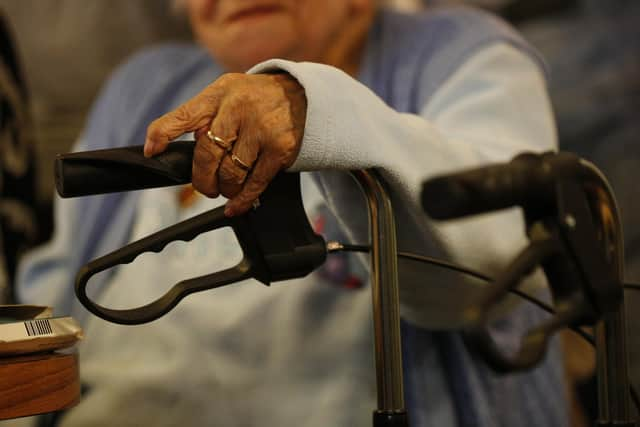Milton Keynes' most deprived men live seven and a half years less than those better off
and live on Freeview channel 276
Data from the Office for Health Improvement and Disparities shows that across 2020 and 2021, the average life expectancy for men in Milton Keynes stood at 78.7 years.
But men from the wealthiest fifth of the area’s population can expect to live to 81.7 years – 7.6 years more than the least well-off males.
Advertisement
Hide AdAdvertisement
Hide AdDeaths due to circulatory issues were the main reason behind lower life expectancy for the area’s poorer men over 2020 and 2021 – reducing their expected life span by 1.7 years.


Meanwhile, average life expectancy for women in Milton Keynes was 82.4 years in 2020 and 2021 – with the least deprived women expected to live 5.6 years longer than those from the area’s poorer communities.
David Finch, assistant director at the Health Foundation, said: "There are staggering differences in life chances in the UK depending on where people live.
"Prior to the pandemic, improvements in health had stalled while inequalities had widened.
Advertisement
Hide AdAdvertisement
Hide Ad"This includes major variation in healthy life expectancy between different areas of the country but also within local areas – sometimes between places that are just a few miles from one another."
While there were stark differences in life expectancy within Milton Keynes, the expected life span for men in the area was the same as the national average of 78.7 years.
Mr Finch added: "We also see significant variation in how many people have long-term conditions, such as cancer and heart disease, between different areas.
"Such marked differences in health are partly related to the varying conditions in which people are born, live and work."
Advertisement
Hide AdAdvertisement
Hide AdHe added that an absence of economic and educational opportunities in poorer areas will likely impact the health and wellbeing of the most deprived.
Across England, the largest within-area gap was in Hartlepool, where the least deprived men can expect to live more than 12 years longer than the most deprived.
Blackpool had the lowest life expectancy for both men and women, at 73 and 78.5 years respectively.
A spokesperson for the Department of Health and Social Care said tackling health disparities is a "priority" for the Government.